I think if my mother had one frustration with me it would be that I was an incredibly impatient child with an inability to sit still and focus. Truth be told, it drove her crazy.
It wasn’t the non-stop running around type of restlessness, rather a young dreamer who often got lost in her own thoughts as she imagined all of the exciting things she was going to do next. Being present, needless to say, was nonexistent as far as I was concerned and definitely a waste of time if you’d asked me then. Truthfully, it took me 40 years to finally understand what “stillness” and “presence” was all about – thanks to my great teacher: The Great Blue Heron.
In one of my early posts I speak of the tall, lanky Great Blue Heron which would fish every day in the marsh behind my grandparent’s house in Massachusetts. In hindsight, I never really saw it fish. It was always just standing on this one rock, ever so tall, and never seemed to move. My grandfather Papa was incredibly proud of this heron, as his artist grandfather studied and admired them greatly, and were frequent subjects of his work. We would often sit on the bank and watch it as he talked about… something (sadly, I can’t even remember what my “next” thing was which was obviously more important at the time – most likely the outfit I was going to wear to the yacht club dance).
Years later when he died, I would occasionally see a Great Blue Heron doing a fly-by in the distance somewhere. I’d smile, think of him, and feel like I had just been given that hug he gave to all of his grandchildren when greeting us. He was so tall that we’d all have to practically run up his long skinny legs to reach his neck with our little arms. Perhaps that’s why the connection to this bird is so strong. They are, after all, the largest of the North American herons with incredibly long skinny legs.
Our family always took notice when seeing one as well, but it wasn’t until my grandmother died that I really took notice as one stood directly in front of me when I rounded the corner on a road I walked every day. This time I stopped and, for the first time in my life, actually stood still and took in the moment in a way I never had before. I wondered many things… but mostly how such an elegant bird could sit so still, for such a long period of time. Those long legs, don’t they get tired? Feet in the water… aren’t they frozen? The fish are swimming over there… why are you standing over here, can’t you see them?
This one was preening at the time, and didn’t seem to mind my presence. I was fascinated with this majestic bird, it’s incredible roaring 20’s feathers, sharp yellow eyes, long beautiful beak, every aspect of it. I remember wishing my grandfather could come back and sit with me to tell me all of the things he talked about that I didn’t pay attention to. Kids: treasure the moments with your grandparents. When they’re speaking to you or spending time with you, savor the moment and listen. Their knowledge and wisdom is incredibly valuable, and you won’t know what you’re missing until they are no longer here.
2010. I had just gotten a new camera. Photographing Great Blue Herons was top on the list. In a matter of weeks I’d purchased a $75 used pair of men’s wading boots from a local sporting goods store, updated my wardrobe with camouflaged gear, and set out on my mission. I was not only ready, I looked good.
I looked ridiculous!
Getting the shots, I thought, would take no time at all, as I had everything I needed for a swift jaunt into the marsh to get the shots I wanted.
Even more ridiculous.
Little did I know that the Great Blue Heron is the MASTER of patience!
“Whether poised at a river bend or cruising the coastline with slow, deep wingbeats, the Great Blue Heron is a majestic sight. This stately heron with its subtle blue-gray plumage often stands motionless as it scans for prey or wades belly deep with long, deliberate steps. They may move slowly, but Great Blue Herons can strike like lightning to grab a fish or snap up a gopher.” – Cornell Lab of Ornithology
The next five years would evolve into the Great Blue Heron becoming my “master”, in teaching the importance of patience, stillness, grounding, and simply being present. I began to go to just sit and be with these majestic birds. Mother Nature created the most incredible gift which, if we spend enough time observing, has the ability to change our lives – naturally. How amazing is that? Naturally. Spend time with this bird – you will soon know exactly what I mean! 🙂
“Forages mostly by standing still or walking very slowly in shallow water, waiting for fish to swim near, then striking with rapid thrust of bill. Also forages on shore, from floating objects, and in grassland. May hunt by day or night.” – Audubon
The Great Blue Heron takes full credit for taking my love of photography to a new level, as patience is truly the one crucial element of any type of wildlife photography. I’m certain my mother would be amazed by her daughter’s new ability to sit in the woods for hours waiting patiently for a little songbird to come along. I enjoy being still and present, I crave it. Did I really just say that? 😉
Yes I did.
“Thanks to specially shaped neck vertebrae, Great Blue Herons can curl their neck into an S shape for a more aerodynamic flight profile and to quickly strike prey at a distance.” – Cornell Lab of Ornithology 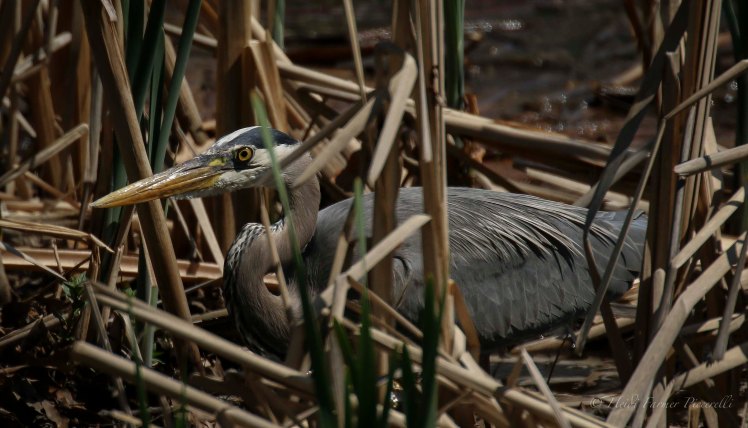
Some of my favorite moments are watching them fish. Boothbay Harbor, Maine was definitely a favorite, as the seaweed provided a wonderful backdrop, and their fishing skills were amazingly impressive.
Back to RI. Often I find them preening, yawning, shaking out their feathers, or stretching as this one did while I was sitting in front of him on my kayak. This one is my speed skater. 🙂
While everyone else is on the move, the waiting game continues…
High up in the trees is where I really love to find them. This is where you can truly see how prehistoric they look.
In flight? Well, you just can’t beat seeing a Great Blue Heron spreading it’s incredible wings & gliding along with seemingly no effort whatsoever, not to mention the sometimes awkward positions they can find themselves in.
Cool Facts
- Great Blue Herons have specialized feathers on their chest that continually grow and fray. The herons comb this “powder down” with a fringed claw on their middle toes, using the down like a washcloth to remove fish slime and other oils from their feathers as they preen. Applying the powder to their underparts protects their feathers against the slime and oils of swamps.
- Great Blue Herons can hunt day and night thanks to a high percentage of rod-type photoreceptors in their eyes that improve their night vision.
- Despite their impressive size, Great Blue Herons weigh only 5 to 6 pounds thanks in part to their hollow bones—a feature all birds share.
- Great Blue Herons in the northeastern U.S. and southern Canada have benefited from the recovery of beaver populations, which have created a patchwork of swamps and meadows well-suited to foraging and nesting. – Cornell Lab of Ornithology
SO, next time you see a Great Blue Heron in flight, say a little hello for me, and put spending time with one on your “to do” list.
And if you see one flying over a Bald Eagle… well, consider that your lucky day. 😉
Cheers!
Heidi
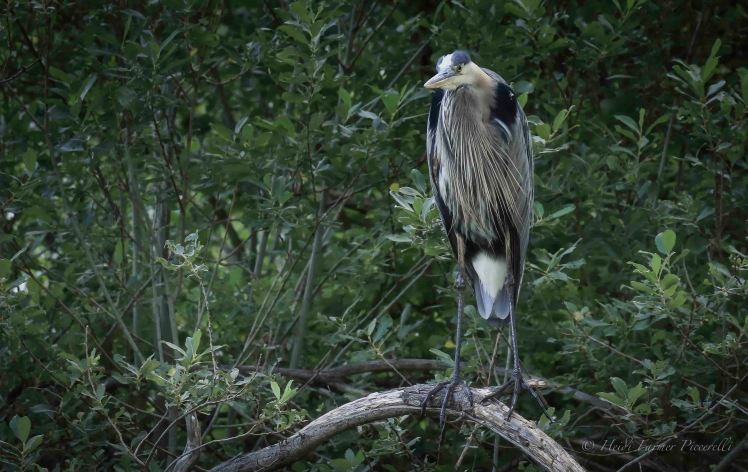
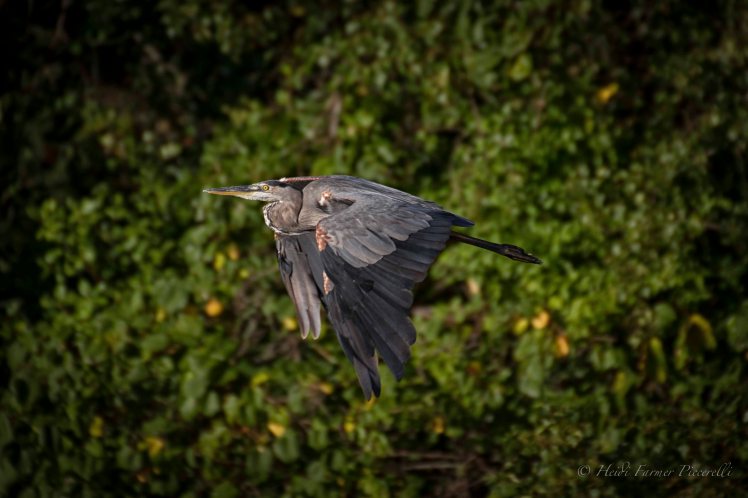



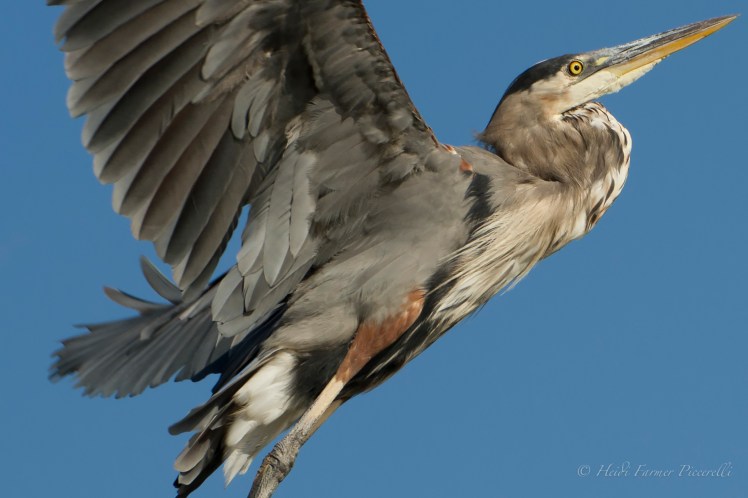
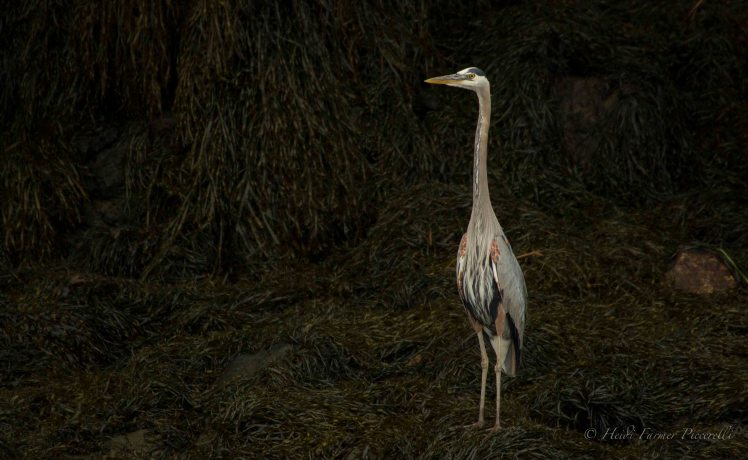
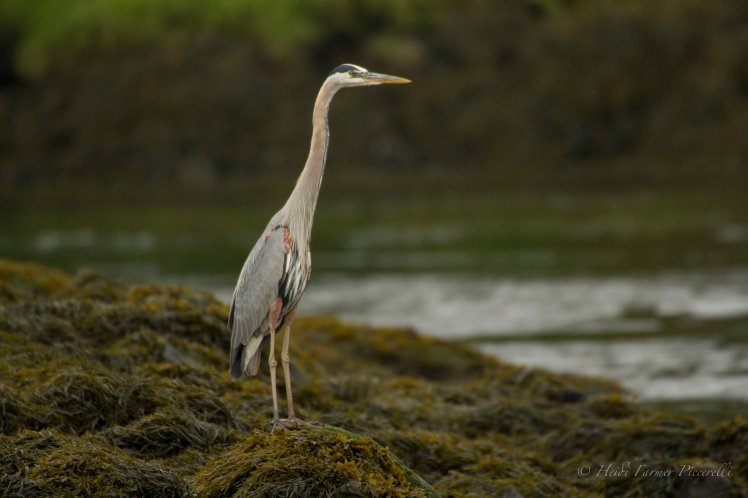
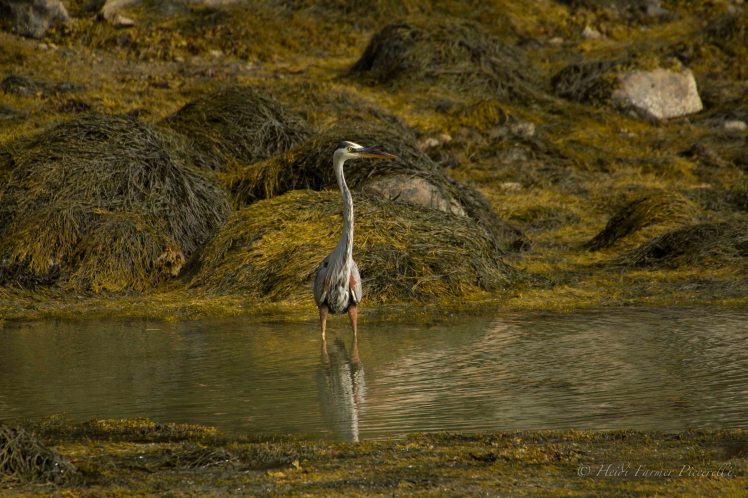
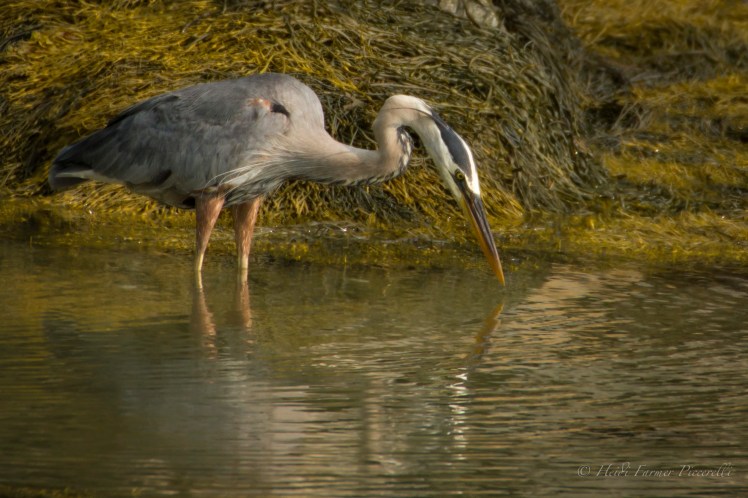
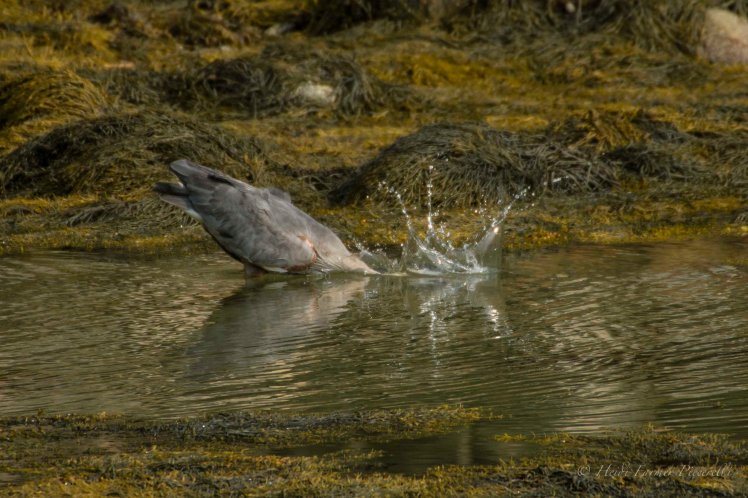
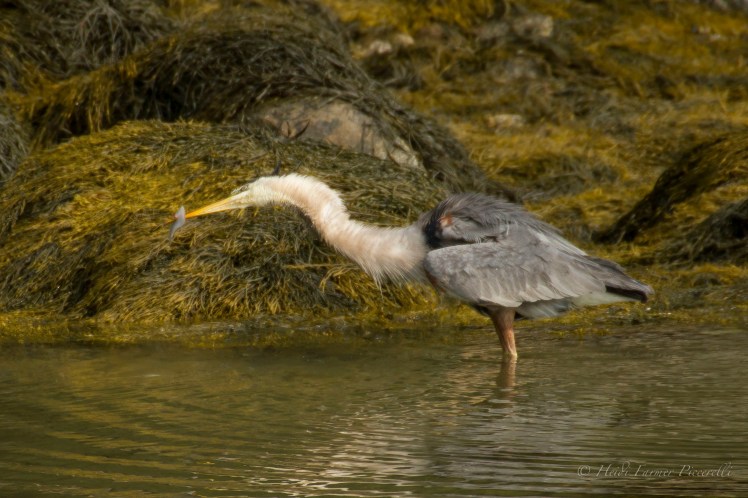
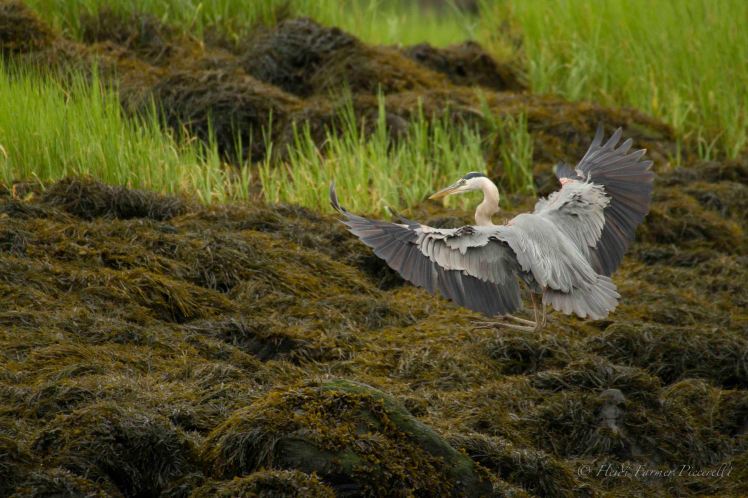
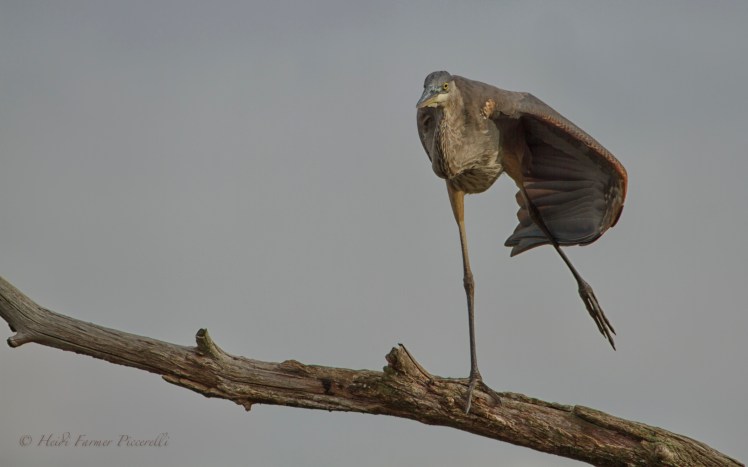
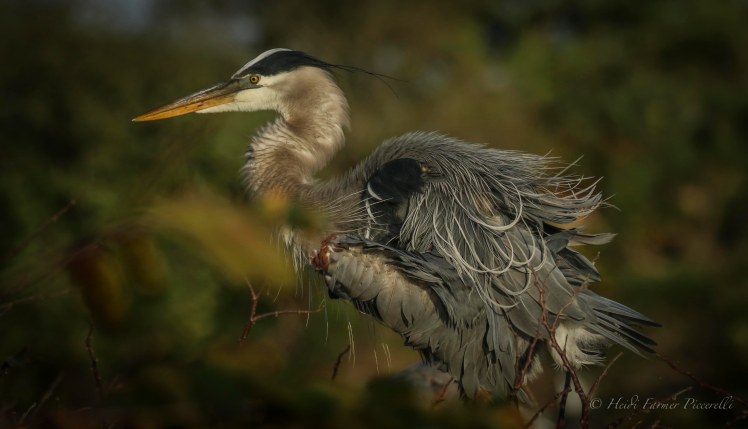



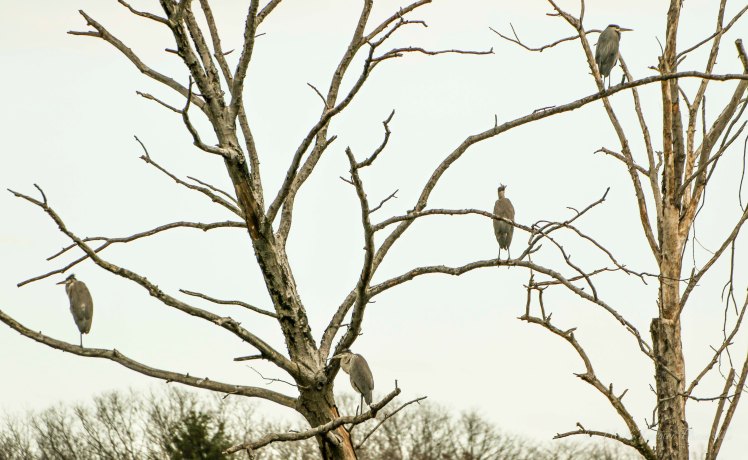
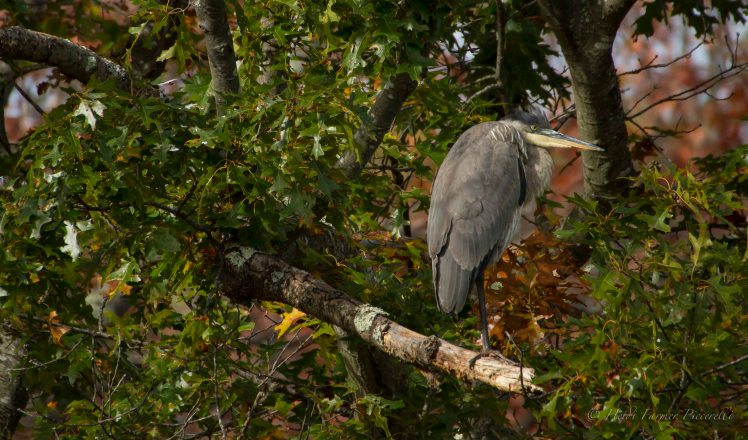
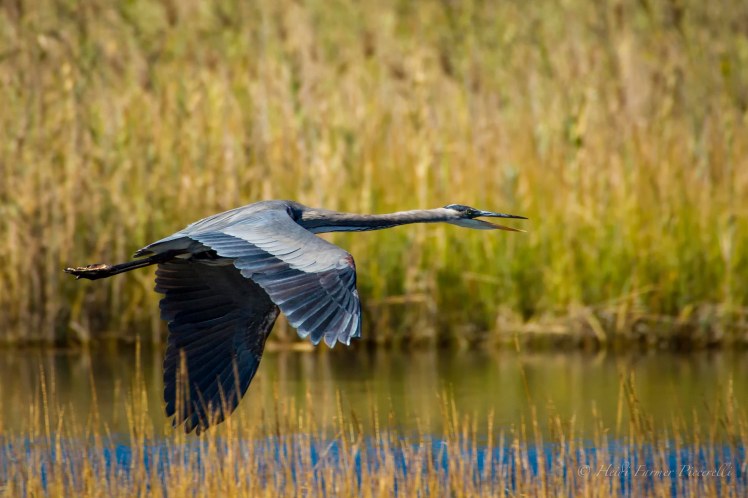
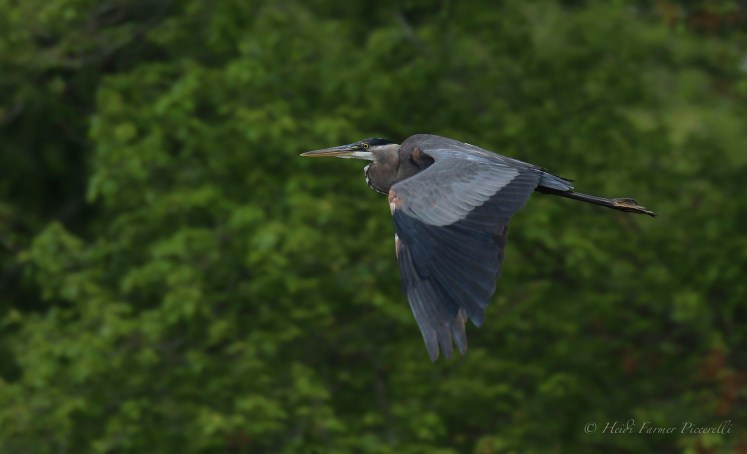

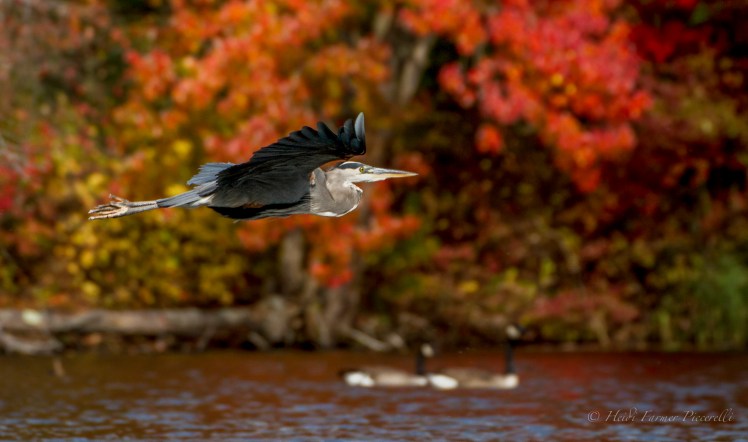
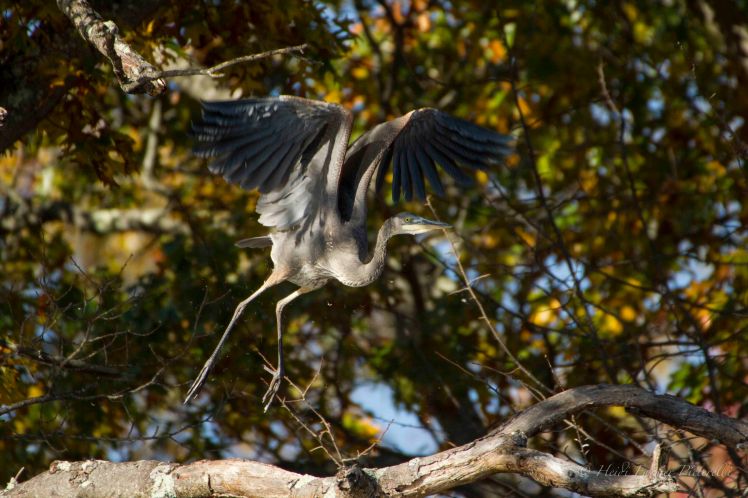
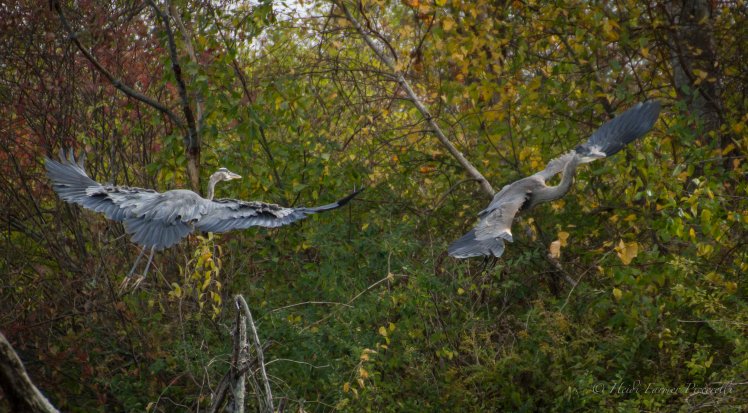
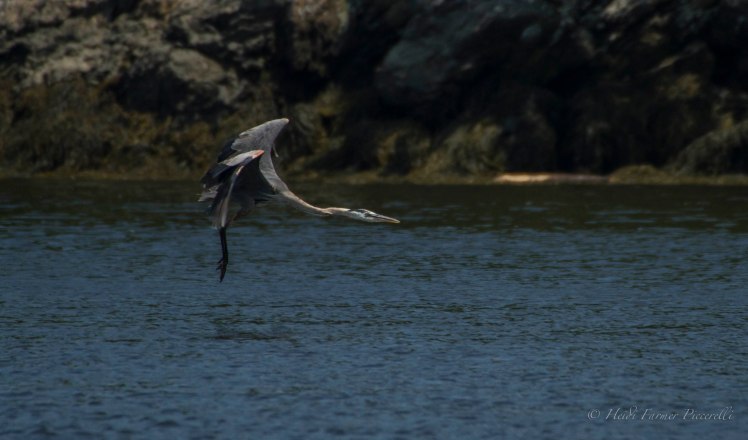
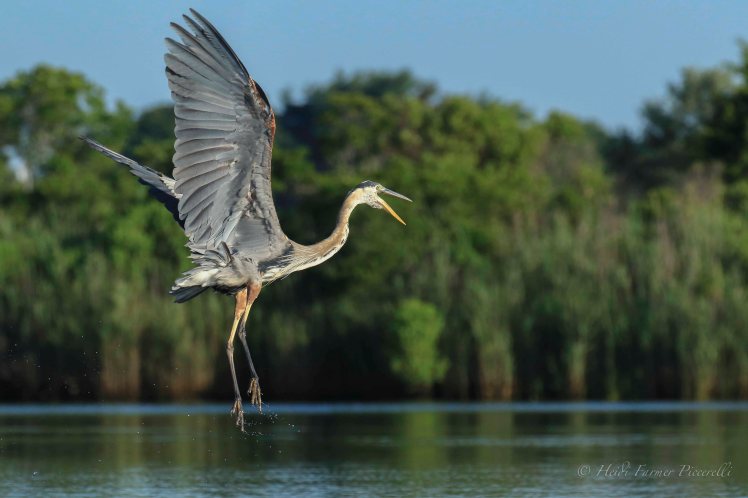
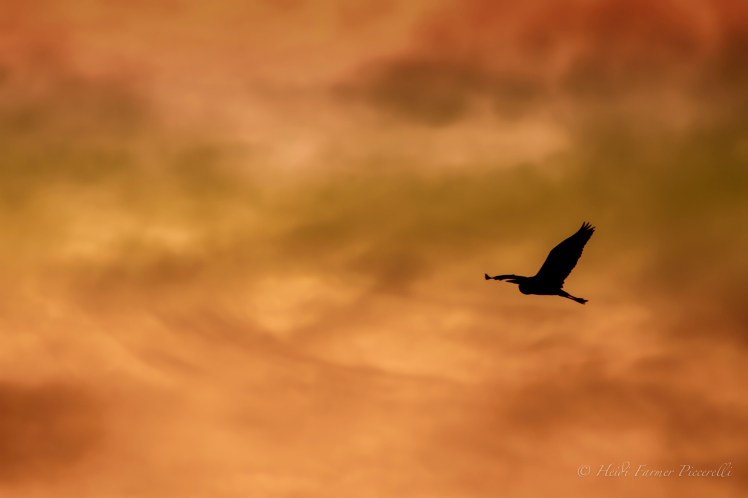

Another set of fantastic photos, coupled with an insightful narrative that combines compelling and entertaining personal experience with useful, informative quotations from Audubon and Cornell. I, too, have learned so much from watching shore birds, especially different herons and egrets. And at the top of that list sits patience. Thanks for another wonderful blog post!
LikeLike